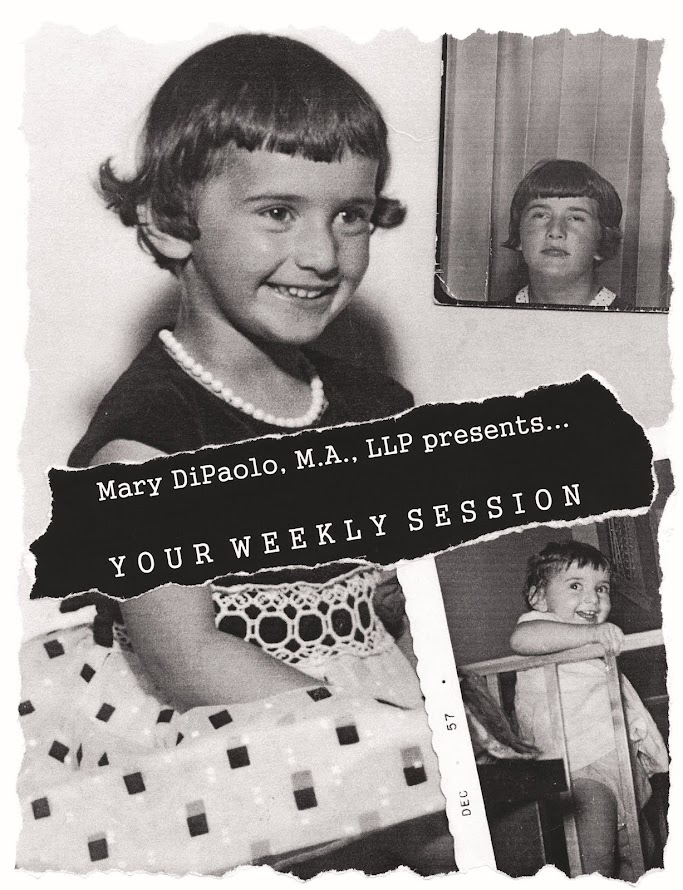Trauma happens to every one of us. Nobody gets a free pass when it comes to avoiding situations which, at some point in your life, will cause you to feel like you have died (figuratively), or you are about to die (literally). I wish it wasn't this way, but it is what it is. For some, trauma occurs here and there with enough years and appropriate intervention(s) inbetween "events" so as not leave a significant footprint of lingering damage. For others, trauma is chronic and repeated..and may have begun as early as infancy. Everyone's experiences with trauma is going to be different. We can't avoid it, we can't deny it, and we can't minimize it. Trauma is the one thing in this life that has the most power to transform us physically, mentally, emotionally, and spiritually than any other human experience. Whether it transforms us for the good...or for the bad....is what I want to talk about today.
One of the great misnomers about "healing" from trauma has to do with timing. Healing cannot be expected or required to "begin" as soon as the event/tragedy/crisis has ended. Crisis responders are of course a valuable and necessary adjunct to whatever it is that has "happened" (such as a school shooting, natural disaster, or kidnapping) when it is happening. HOWEVER, survivors of trauma are very rarely "ready" to talk about their feelings about the event when they are still in an emergency state. This emergency state may be literal ("I need food!" "My baby needs diapers!")...or figurative ("I can't think straight!" "I'm too afraid to think about that right now!"). Often, survivors of trauma don't even want to address what they went through until months or years later when they feel completely "safe" in their present lives. This is very typical of survivors of ongoing and traumatic abuse as would be the case with childhood survivors of incest, domestic violence, and criminality.
Yet the "timing" of one's own healing from a traumatic event or past is still very important. Some trauma survivors so deny and minimize what happened to them...that they "forget" what lessons they were meant to learn as a result of their traumatic experience(s). This is especially true for individuals who may have struggled with setting and maintaining their own boundaries b.t. (before trauma). If the lines keep getting blurred between what's right and what's wrong...it can be very easy to drift further and further away from "right" once trauma comes knocking at your door. As a result, this type of trauma survivor ends up saying to themselves and others, "I'm fine! I don't need to see a therapist! I'm good!" This is very common among war veterans who struggle with post-traumatic stress disorder. Ethan Brown, author of the book "Shake the Devil Off" wrote very eloquently about this issue involving an Iraqi/Kosovo war veteran who ended up committing a murder/suicide.
If there is any lessons to be learned here, it is this: When we treat our past traumas like they are "no big deal" or "too big a deal"...we lose our chance at true healing, positive change, and growth. Trauma is a terrible way for anybody to have to learn positive skills and insights....but again, it is what it is. What doesn't kill you CAN make you stronger...but only if you give it permission to.
Until next time....
One of the great misnomers about "healing" from trauma has to do with timing. Healing cannot be expected or required to "begin" as soon as the event/tragedy/crisis has ended. Crisis responders are of course a valuable and necessary adjunct to whatever it is that has "happened" (such as a school shooting, natural disaster, or kidnapping) when it is happening. HOWEVER, survivors of trauma are very rarely "ready" to talk about their feelings about the event when they are still in an emergency state. This emergency state may be literal ("I need food!" "My baby needs diapers!")...or figurative ("I can't think straight!" "I'm too afraid to think about that right now!"). Often, survivors of trauma don't even want to address what they went through until months or years later when they feel completely "safe" in their present lives. This is very typical of survivors of ongoing and traumatic abuse as would be the case with childhood survivors of incest, domestic violence, and criminality.
Yet the "timing" of one's own healing from a traumatic event or past is still very important. Some trauma survivors so deny and minimize what happened to them...that they "forget" what lessons they were meant to learn as a result of their traumatic experience(s). This is especially true for individuals who may have struggled with setting and maintaining their own boundaries b.t. (before trauma). If the lines keep getting blurred between what's right and what's wrong...it can be very easy to drift further and further away from "right" once trauma comes knocking at your door. As a result, this type of trauma survivor ends up saying to themselves and others, "I'm fine! I don't need to see a therapist! I'm good!" This is very common among war veterans who struggle with post-traumatic stress disorder. Ethan Brown, author of the book "Shake the Devil Off" wrote very eloquently about this issue involving an Iraqi/Kosovo war veteran who ended up committing a murder/suicide.
If there is any lessons to be learned here, it is this: When we treat our past traumas like they are "no big deal" or "too big a deal"...we lose our chance at true healing, positive change, and growth. Trauma is a terrible way for anybody to have to learn positive skills and insights....but again, it is what it is. What doesn't kill you CAN make you stronger...but only if you give it permission to.
Until next time....
